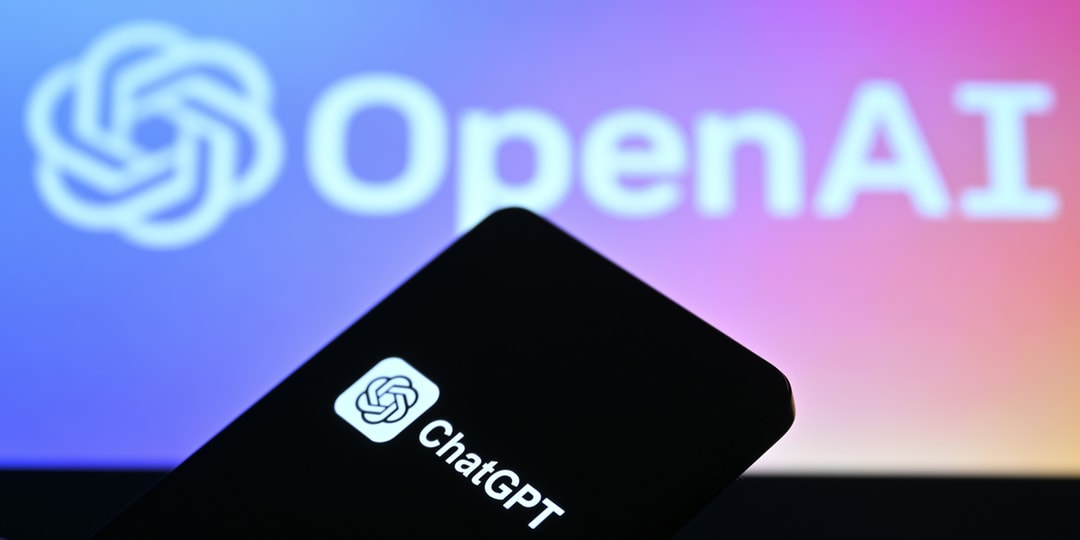ChatGPT And OpenAI: The FTC's Investigation And Future Of AI Regulation

Table of Contents
The FTC's Investigation into OpenAI and ChatGPT
The FTC's investigation into OpenAI and ChatGPT centers on allegations of misleading practices and potential violations of consumer protection laws. The implications of this investigation are far-reaching, potentially setting a precedent for future AI regulation across various sectors.
Allegations of Misleading Practices
The FTC's allegations against OpenAI revolve around several key areas:
- False advertising regarding ChatGPT's capabilities: Critics argue that OpenAI has overstated ChatGPT's accuracy and reliability, leading consumers to believe it possesses capabilities it doesn't actually have. This includes inaccuracies in its responses and the potential for the generation of misleading or harmful information.
- Insufficient data security leading to privacy violations: Concerns exist regarding the security of user data used to train ChatGPT. Allegations include inadequate safeguards against data breaches and a lack of transparency about data collection and usage practices. This raises serious questions about the protection of personal information within AI systems.
- Lack of transparency about data collection and usage: The FTC investigation is examining OpenAI's transparency regarding how it collects, uses, and protects user data. The lack of clear and readily available information on data handling practices has fueled concerns about potential misuse and non-compliance with existing data protection laws.
- Potential for misinformation spread by ChatGPT: The ability of ChatGPT to generate realistic but false information poses significant risks. The FTC is investigating whether OpenAI has adequately addressed the potential for the spread of misinformation and disinformation through its platform.
Potential Penalties and Legal Ramifications
The potential penalties facing OpenAI are significant and could reshape the AI industry. These include:
- Significant financial penalties: Large fines could severely impact OpenAI's financial stability and future development plans.
- Mandatory independent audits of data practices: This would involve external experts reviewing OpenAI's data handling practices to ensure compliance with regulations.
- Limitations on the use of certain data sets: The FTC may restrict OpenAI’s access to specific datasets if deemed problematic from a privacy or safety perspective.
- Changes to product development and deployment processes: The FTC might mandate changes to how OpenAI develops and deploys AI models like ChatGPT to ensure compliance with consumer protection laws and address safety concerns.
Broader Implications for AI Regulation
The FTC's investigation into OpenAI and ChatGPT has far-reaching implications, highlighting the urgent need for a comprehensive regulatory framework for AI.
The Need for Comprehensive AI Legislation
The current regulatory landscape struggles to address the unique challenges posed by AI technologies like ChatGPT. Comprehensive legislation is needed to:
- Establish data privacy regulations specific to AI: These regulations must address the unique data privacy challenges presented by AI, including the use of personal data for training and deployment.
- Develop liability frameworks for AI-generated harm: Clear legal frameworks are needed to assign responsibility for harm caused by AI systems, including those caused by inaccuracies or biases.
- Define standards for algorithmic transparency and accountability: Legislation should mandate transparency in how AI algorithms are designed, trained, and deployed, ensuring accountability for their actions.
Balancing Innovation with Ethical Considerations
Responsible AI regulation requires a careful balance between fostering innovation and addressing the ethical concerns surrounding AI. This includes:
- Addressing algorithmic bias through diverse datasets: Bias in AI systems can perpetuate societal inequalities. Using diverse and representative datasets during training is crucial to mitigate these biases.
- Implementing safety protocols to prevent misuse: Robust safety protocols are needed to prevent the misuse of AI technologies, including safeguards against malicious use and the spread of misinformation.
- Investing in retraining programs for displaced workers: As AI technologies automate tasks, retraining and upskilling programs are necessary to support workers affected by job displacement.
International Collaboration on AI Governance
Effective AI regulation requires international cooperation to establish global standards and best practices. This includes:
- Harmonizing data protection laws across countries: Establishing common data protection standards is crucial to prevent regulatory arbitrage and ensure consistent protection of individuals' data.
- Sharing best practices for AI safety and security: International collaboration can facilitate the sharing of best practices to enhance the safety and security of AI systems worldwide.
- Promoting joint research and development efforts: Collaborative research efforts can advance the development of safer and more ethical AI technologies.
Conclusion
The FTC's investigation into OpenAI and ChatGPT is a critical step in shaping the future of AI regulation. The potential penalties and the broader implications for AI governance highlight the urgency of establishing comprehensive and adaptable policies that balance innovation with ethical considerations. The investigation underscores the need for proactive measures to address data privacy, algorithmic transparency, and the prevention of misuse. The future of AI hinges on responsible development and deployment, requiring continuous dialogue and collaboration between policymakers, researchers, and industry stakeholders. Understanding the implications of ChatGPT and similar AI advancements is crucial for navigating the future of this transformative technology. Stay informed about these crucial developments and contribute to the dialogue on how we can harness the power of AI responsibly.

Featured Posts
-
 Mission Impossible Dead Reckoning Part Two Big Game Spot Breakdown
Apr 26, 2025
Mission Impossible Dead Reckoning Part Two Big Game Spot Breakdown
Apr 26, 2025 -
 Examining The Truthfulness Of Claims Against Gavin Newsom
Apr 26, 2025
Examining The Truthfulness Of Claims Against Gavin Newsom
Apr 26, 2025 -
 Early Birthday Celebrations Announced By The King
Apr 26, 2025
Early Birthday Celebrations Announced By The King
Apr 26, 2025 -
 Anchor Brewing Company Shuts Down Impact On The Craft Beer Industry
Apr 26, 2025
Anchor Brewing Company Shuts Down Impact On The Craft Beer Industry
Apr 26, 2025 -
 Stockholm Stadshotell Fullstaendig Recensionsanalys Av Krogkommissionen
Apr 26, 2025
Stockholm Stadshotell Fullstaendig Recensionsanalys Av Krogkommissionen
Apr 26, 2025
